No matter how old you are, ensuring that you get enough protein on a daily basis is critical to living a healthy lifestyle. Protein helps you feel full and satiated, build muscle, manage your blood pressure, recover your energy, and maintain a healthy metabolism. However, the need for daily protein becomes even more vital as you age because of the inevitable changes your body experiences as you get older.
"After 25, adults lose about 2–3% of their lean muscle mass as well as experience a 2–3% decline in resting metabolic rate," says Amy Goodson, MS, RD, CSSD, LD, author of The Sports Nutrition Playbook and member of our expert medical board. "The reality is these two things are likely related, as having larger quantities of lean muscle mass promotes a more active metabolism. So, consuming adequate protein is essential as you age so that you are able to maintain lean muscle mass."
It's easy enough to say, "You need more protein." But how can you set yourself up to incorporate more of it into your eating patterns on a daily basis? To find out, we consulted several dietitians to find out their choices for the best protein-heavy foods to eat after 50. Read on, and for more healthy eating tips, check out 6 Best Supplements to Keep Your Brain Young.
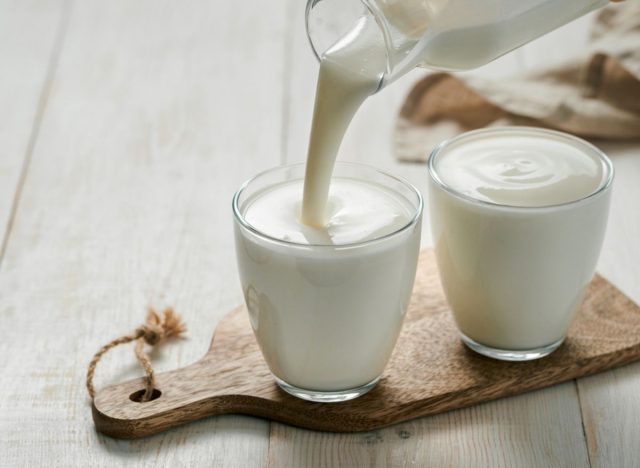
Many dairy foods get a bad rap. However, if you don't have a dairy allergy or aren't lactose intolerant, these foods can provide you with helpful protein and vitamins as you get older.
"Dairy foods like milk, cheese, and yogurt not only promote strong, healthy bones because of their calcium content, they also provide high-quality protein to help you build and maintain lean muscle mass," says Goodson. "In fact, milk contains branched-chain amino acids leucine that research shows can turn on muscle resynthesis after a workout."
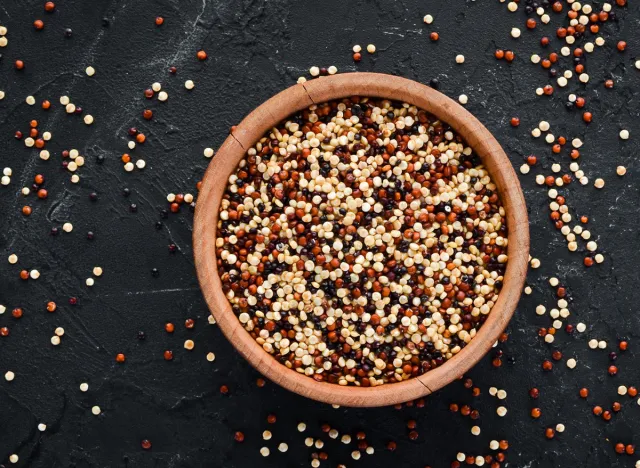
Quinoa is an affordable, extremely healthy whole grain that is both easy to prepare and versatile. In addition to being able to incorporate it into many different types of meals, it's also high in protein—making it a great choice for meeting your daily protein goals.
"This whole grain is a plant-based source of complete protein, which means it provides all essential amino acids," says Trista Best, MPH, RD, LD, and consultant with Balance One Supplements. "Also, the fiber content helps to contribute to its aging benefits by lowering the risk of heart disease by removing cholesterol from the body, and it works to improve the immune system by feeding the good gut bacteria."
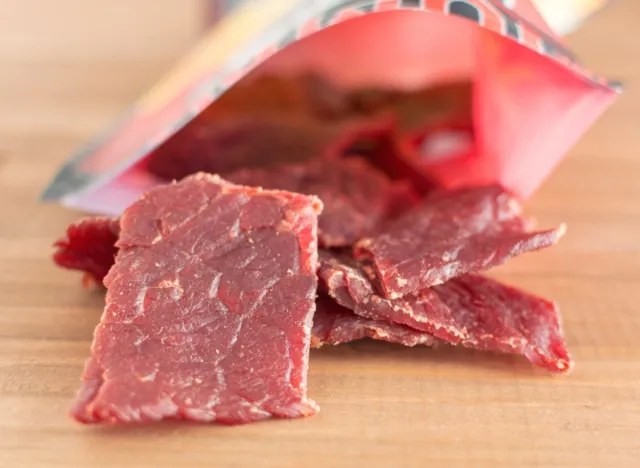
Another food that has a bit of a negative reputation—especially once people hit their 50s—is beef. But Goodson says that finding lean, high-quality cuts is key in choosing healthy beef products.
"Packed full of 10 essential nutrients, like iron, vitamin B-12, the antioxidant selenium, and high-quality protein, beef is a fantastic way to add protein to your eating regimen," Goodson explains. "Pair it with veggies and whole grains at meals. Or if you need an on-the-go protein, try beef jerky. Shelf stable, [beef jerky] is a simple snack that you can throw in your purse, computer bag, or gym drawer."
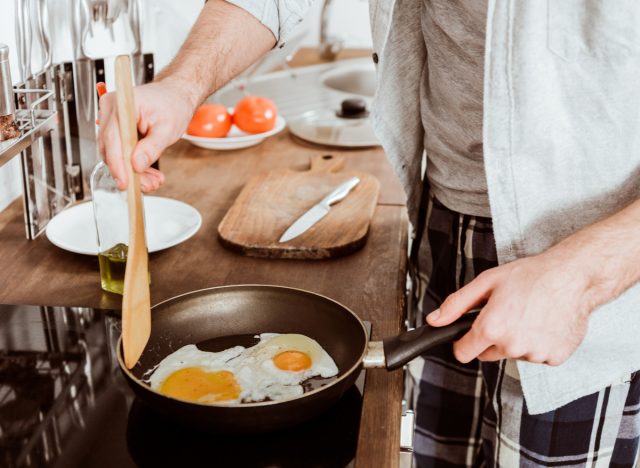
Eggs are sometimes discussed in a negative light because of their potential effects on your cholesterol. However, some research has suggested that eggs could be healthier than we may have once thought.
"Eggs are the most bioavailable protein to the body," Goodson says. "With 6–7 grams of protein per egg, they also provided the added benefit of iron, vitamins B-12 and D, and the nutrient choline, which research suggests helps with brain and cognitive health."
Best adds that eggs can also be a great source of protein for those wanting to lose weight or manage their weight goals. "Eggs can help with weight loss efforts by providing a lean source of protein and healthy fats, which will both help the consumer feel full for longer and can lead to a reduction in overeating by increasing satiety."
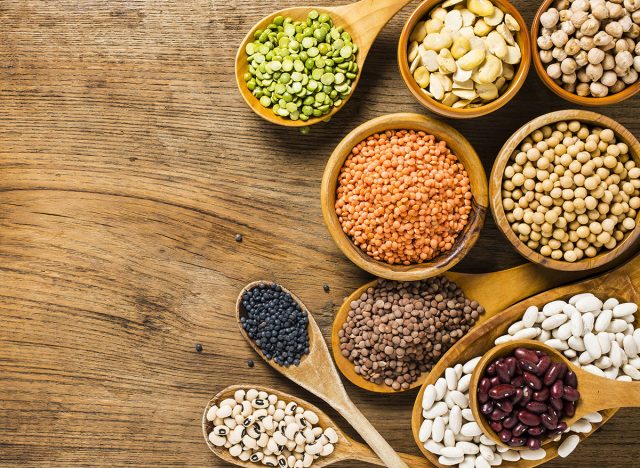
When it comes to finding healthy proteins, Best says that "complete proteins" are some of the healthiest to choose from.
"There are 20 amino acids, nine of which are essential—meaning they must be obtained through the diet. Animal protein sources naturally contain all 20 amino acids and are therefore naturally complete proteins, but many plant-based proteins are not," Best explains. "However, combining rice and beans provides the right combination of amino acids to achieve this."
Beans and legumes are not only chock-full of protein, but they provide helpful levels of fiber, too.
"The fiber content of beans will also keep you full and satisfied long after a meal and is beneficial for feeding the gut's good bacteria, binding and flushing out toxins and waste from your body, and even helps to reduce cholesterol and body weight," Best says.
The 5 Best High-Protein Foods to Eat After 50 — Eat This Not That - Eat This, Not That
Read More


No comments:
Post a Comment